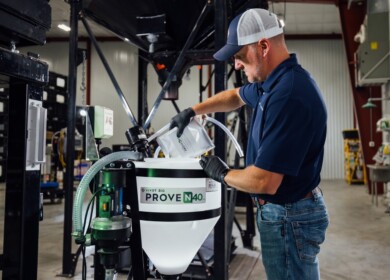Bio-based coatings can make fertilizers more sustainable

As the European Union tightens regulations on chemical usage, the coatings industry is pivoting towards sustainability by integrating bio-based feedstocks and recycled content into their products. This shift aligns with new legislative standards and sets the stage for potential advancements in sustainable agricultural practices.
Traditionally seen as niche, bio-based materials have become essential for industries aiming to reduce their environmental footprint. These feedstocks, derived from non-food organic waste like seed shells or vegetable oils, are incorporated into the coatings production chain, reducing the end products’ overall carbon footprint. Notably, some of these materials can yield proteins as by-products, which hold promising potential for use as fertilizers in the agricultural sector.
The introduction of a biomass balance process ensures that the incorporation of bio-based content is managed precisely, helping to phase out fossil-based materials while maintaining product performance. This method also supports robust sustainability claims through meticulous record-keeping that tracks the material flow throughout the product’s lifecycle, enhancing transparency and accountability.
Moreover, the rise of chemical recycling has catalyzed the availability of recycled feedstocks, turning plastic waste into valuable raw materials for coating manufacturing. This process conserves fossil resources and enhances the circularity of materials, which is crucial for long-term sustainability goals.
However, the evolving European regulatory landscape poses challenges, requiring manufacturers to critically assess the sustainability of their bio-based feedstock sources, particularly in terms of land and water use. As the industry navigates these regulations, the dual approach of utilizing bio-based and recycled materials could significantly advance the development of more sustainable coatings and, by extension, eco-friendly fertilizers that contribute to more sustainable agricultural practices.
Enjoyed this story?
Every Monday, our subscribers get their hands on a digest of the most trending agriculture news. You can join them too!















Discussion0 comments